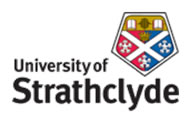


Small Scale Hydro Opportunities in Rural Locations
Hydro Power makes use of the potential energy that water at a certain height has. In order to know how much power can be produced, certain variables are required. The main ones are: the difference in height (also called head) and the flow rate. The installation of a hydro power system will require specific conditions in order to be able to take advantage of these required variables. The following figure shows a typical mini-hydro scheme.
Figure 1. Typical mini-hydro scheme
Source: Practical Action, Micro-Hydro power - Technical brief
Typically a small scale hydro system is located beside a river or stream; using it as the source and the topography as the difference in height. The head will be the difference in height between the water chamber or forebay tank and powerhouse (see figure 1), where the water goes through the penstock.
In the scheme showed, a channel is used between the intake and the forebay tank. The use of this channel or similar structures will depend on the particular conditions of each location. Other options include being able to reduce the channel or even use the intake directly as the beginning of the penstock (instead of the channel), or include a channel between the powerhouse and stream to return the water.

| MSc: Renewable Energy Systems and the Environment | © University of Strathclyde 2010 |
